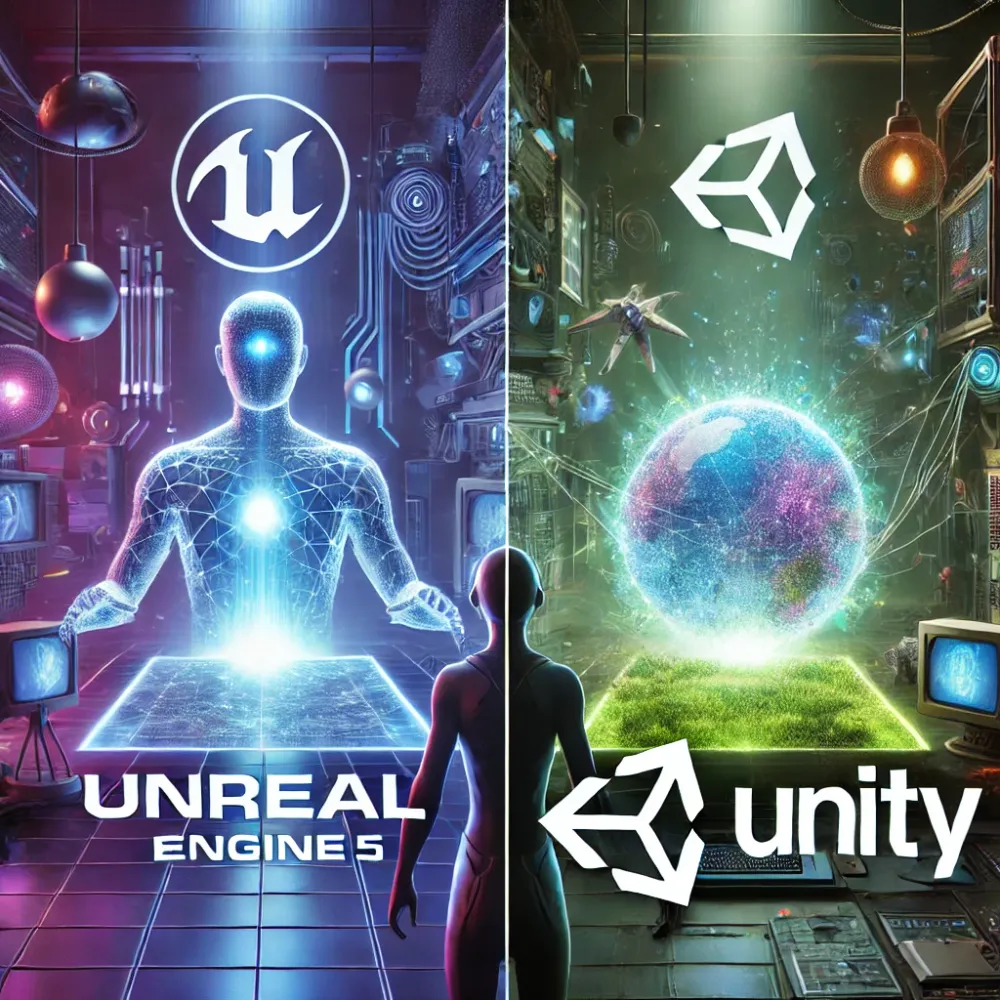Game engines of the future: Unreal 5 vs. Unity AI tools compared
Unreal Engine 5 and Unity have emerged as leading platforms, each integrating advanced artificial intelligence (AI) tools to enhance the creation of immersive gaming experiences. This article provides a comparative analysis of their AI capabilities, assisting developers in selecting the most suitable engine for their projects.
Unreal Engine 5: AI capabilities
Unreal Engine 5 offers a comprehensive suite of AI tools designed to create complex and realistic behaviors in non-player characters (NPCs). Key features include:
- Behavior trees: These provide a structured framework for designing intricate AI behaviors, enabling NPCs to make decisions based on hierarchical conditions (Epic Games Dev).
- Environment Query System (EQS): EQS allows AI agents to perceive and interact with their surroundings intelligently, facilitating dynamic responses to environmental changes.
HttpGPT Plugin: This open-source plugin integrates OpenAI's GPT services within Unreal Engine, supporting asynchronous tasks and compatibility with multiple models, thereby enhancing project communication and AI integration (Umbra).
- Ludus AI: A toolkit that generates C++ code and Blueprints using AI, streamlining the development process and providing instant solutions to Unreal Engine 5 queries (Ludus Engine).
Unity: AI capabilities
Unity has developed AI tools aimed at democratizing game development and expediting the creative process. Notable features include:
- Unity Muse: This platform brings generative AI directly into the Unity Editor, enabling creators to develop games and real-time 3D experiences using simple text-based prompts (Unity).
- Unity Sentis: Sentis allows developers to embed neural networks in the Unity Runtime, facilitating complex features like object identification, speech recognition, and intelligent NPCs across various projects (Unity).
- ML-Agents Toolkit: This toolkit enables developers to train intelligent agents using reinforcement learning, imitation learning, and other machine learning methods, enhancing the sophistication of in-game behaviors (Invo Games).
Comparative analysis
- Ease of use: Unity's AI tools, such as Muse and Sentis, are designed to be accessible, catering to developers with varying levels of expertise. In contrast, Unreal Engine's AI features, like Behavior Trees and EQS, offer extensive control but may require a steeper learning curve.
- Integration: Both engines provide seamless integration of AI tools within their development environments. Unity's Muse and Sentis are embedded directly into the Unity Editor, while Unreal Engine's AI tools are integral components of its framework.
- Community and support: Both Unity and Unreal Engine boast active communities and comprehensive documentation, offering robust support for developers exploring AI functionalities.
Unreal Engine 5 and Unity each present distinct AI tools tailored to different development needs. Unreal Engine 5 excels in providing detailed control over AI behaviors, making it ideal for projects requiring complex NPC interactions. Conversely, Unity's AI offerings focus on accessibility and rapid prototyping, appealing to developers seeking efficient and user-friendly solutions. Selecting the appropriate engine depends on the specific requirements and goals of your game development project.




